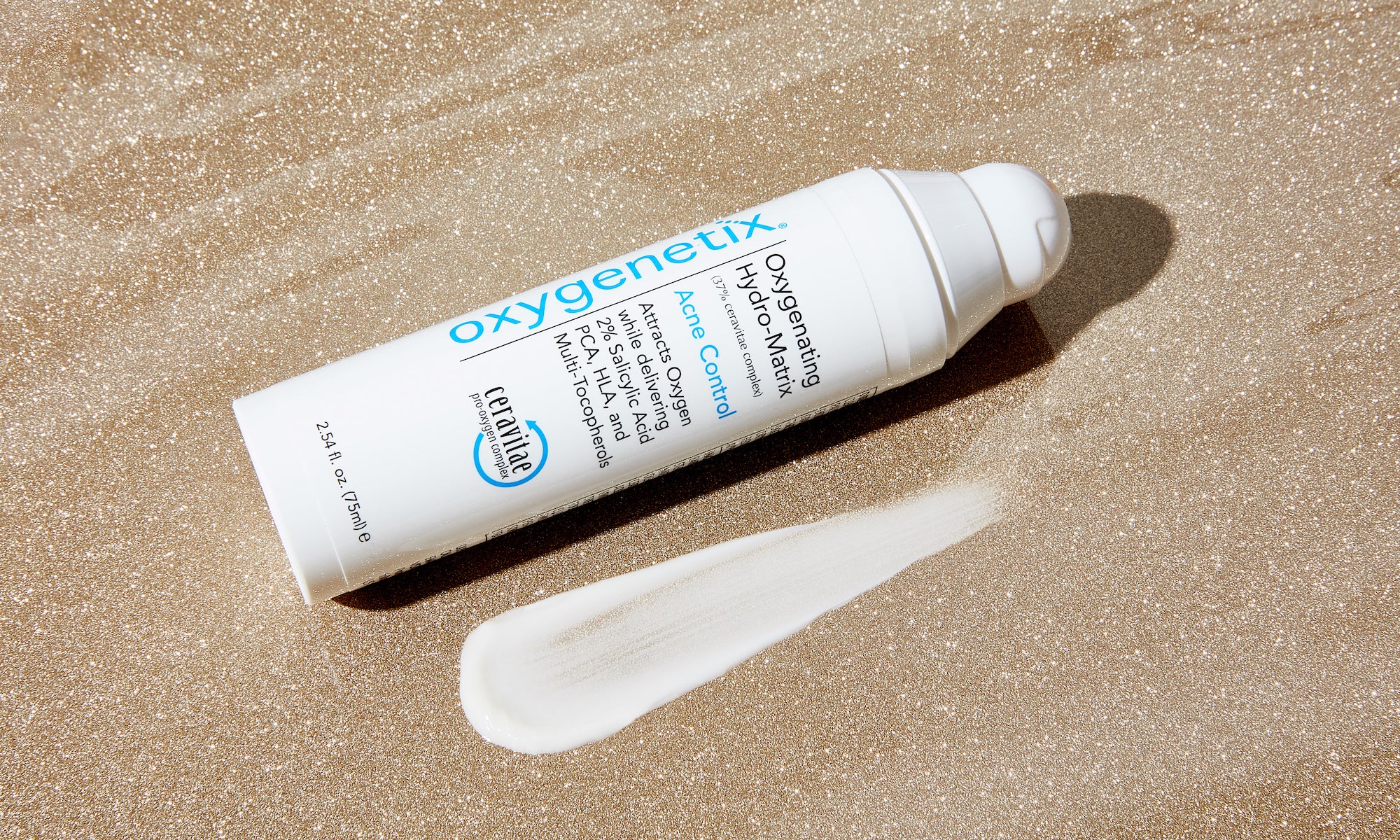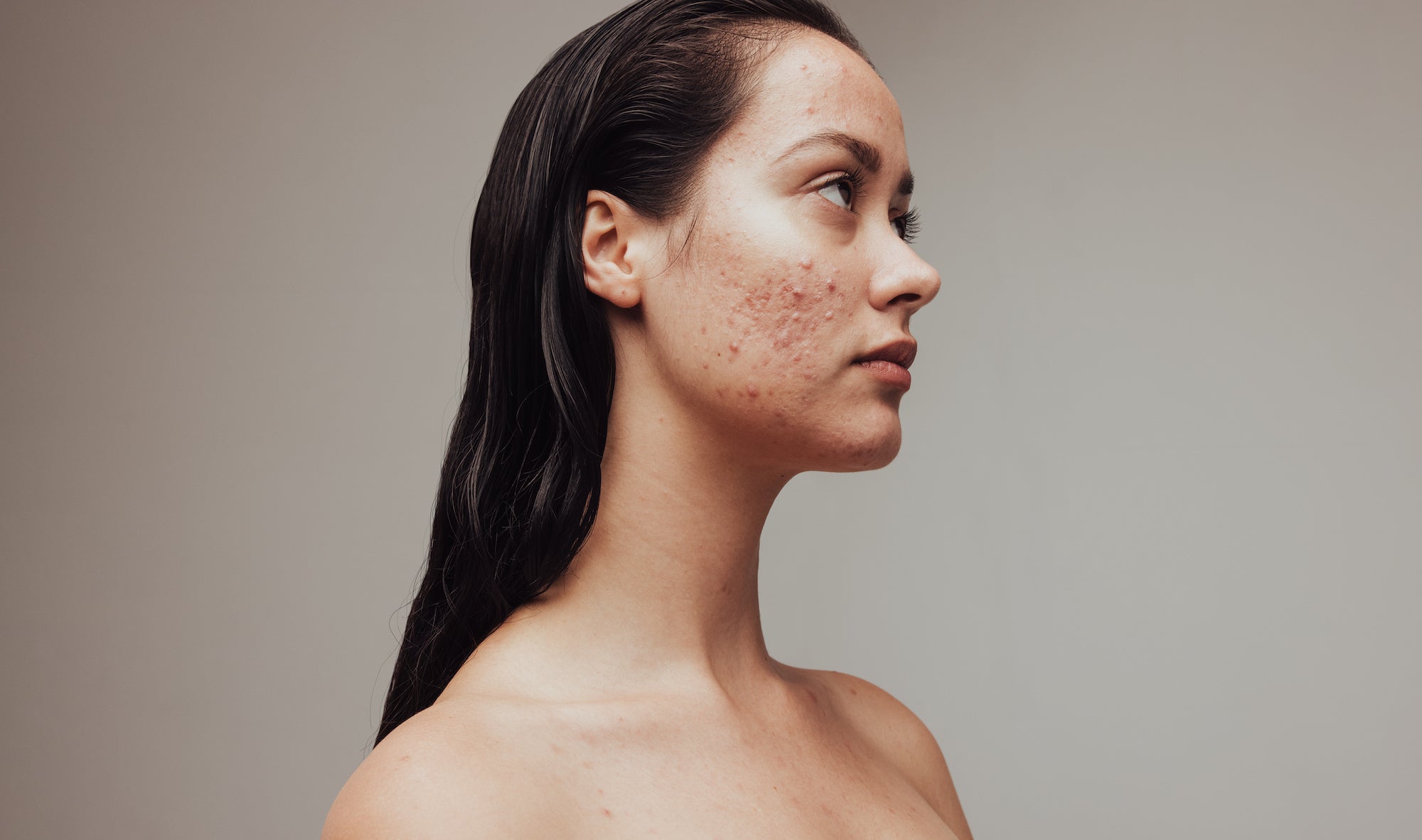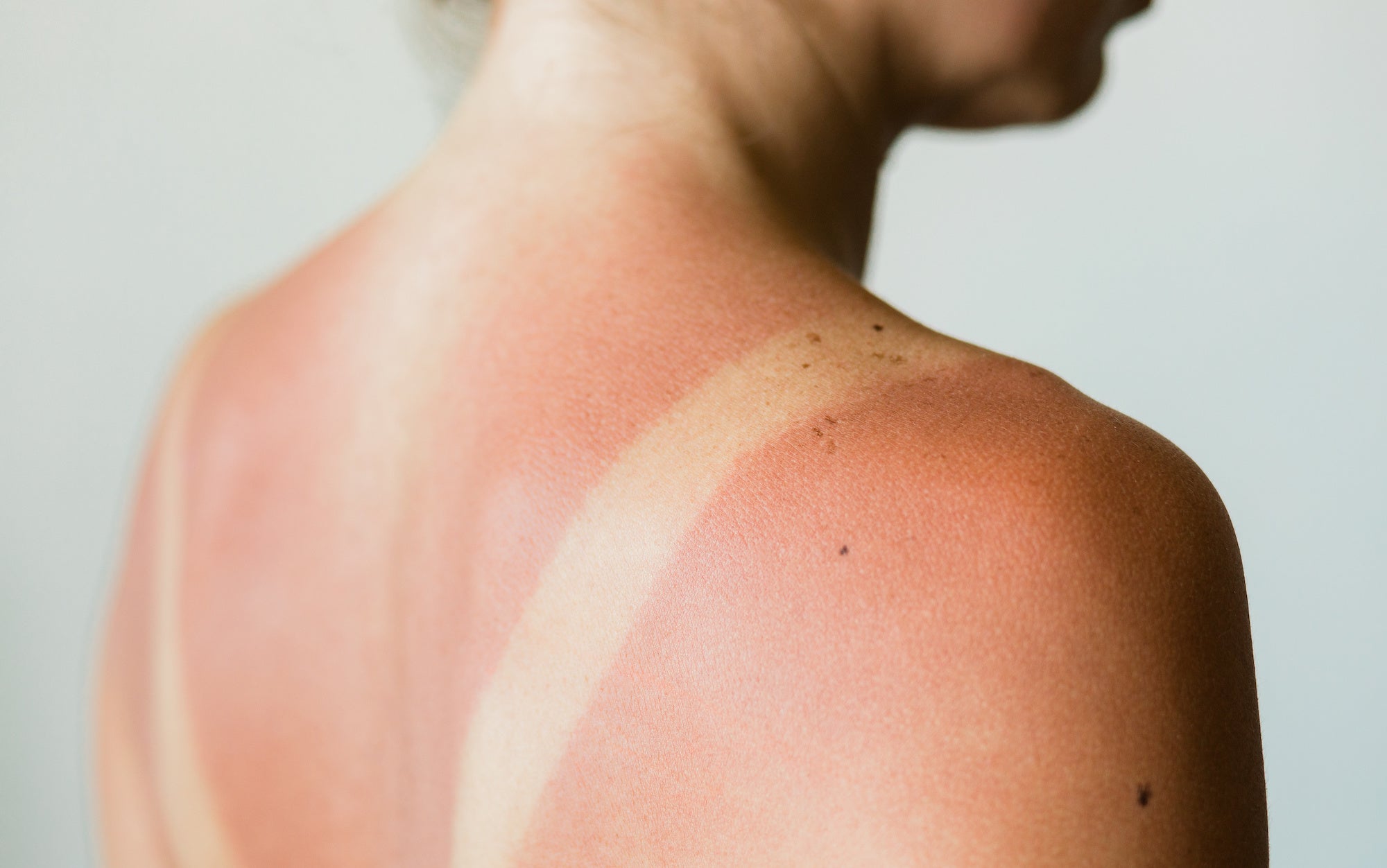
How to Choose a Moisturizer for Acne-Prone Skin
You may feel like your acne prone skin needs anything but moisture, but that couldn't be farther from the truth.
Healthy, pimple-free skin is hydrated with a balanced PH and the right amount of sebum (your skin's natural oils). Just like soil, your skin needs healthy nutrients, moisture, and oxygen to thrive.
Finding a good moisturizer that won't clog your pores or feel greasy on an already oily complexion can be a hard task! To take away some of the guesswork we have gathered some of the best ingredients and code words to look for in a moisturizer for acne-prone skin, and what to avoid.
What to Look For
Acne-prone skin is sensitive. Your epidermis is compromised, and sometimes has open pustules that need extra care. What you put on your skin during breakouts can make or break your skincare progress.
Non-Comedogenic
Look for products that are non-comedogenic, meaning they won't clog your pores. A clogged pore can trap bacteria and debris, causing more pustules and discomfort.
Heavy formulations can clog your pores over time, creating whiteheads and blackheads. Over moisturizing with heavy moisturizers especially is a sure fire way to plug up your skin and start seeing more acne.
Oil-Free
Moisturizers that contain mineral oils tend to clog pores. These oils help lock in moisture and may feel silky and smooth, but they can create a barrier over the skin, essentially blocking airflow harboring bacteria.
Oxygenetix Advisory Board Member, dermatologist Ava Shamban, told Allure, "creams that combine mineral oil and paraffin can actually damage the skin barrier and increase water loss."
Stay clear of coconut oil and lanolin as well, as these are both heavy oils that can clog your pores.
Salicylic Acid
One of the best exfoliants for acne is salicylic acid. Not only is it able to penetrate the skin layers deeper and clean deep into the pores, it is gentle on the skin at OTC levels (maximum strength 2%). Using pure salicylic is often used to spot treat, but can really dry out your skin. So proceed with caution when the percentage is higher than 2%.
Board-certified dermatologist and cosmetic surgeon, Dr. Michael H. Gold, M.D., F.A.A.D. told us of the benefits stating, “Salicylic acid, one of the beta hydroxyl acids, has been used for many years in dermatology and still has a role today for a variety of skin conditions. It is a common ingredient in many skin care products due to its ability to exfoliate the top layer of the skin, known as the stratum corneum.”
Dr. Raymond Schep, the chief chemist at Oxygenetix Institute, expands on the role of salicylic acid as an active ingredient through a scientific lens. “Salicylic acid is ideal as a safe, natural ingredient which comes from willow bark. Through disinfection action, salicylic acid kills the bacteria that creates acne.”
Oxygenetix Acne Control Hydro-Matrix has same formula as Oxygenating Hydro-Matrix with added 2% salicylic acid. Unclogging pores and combatting sebum overproduction, Acne Control Hydro-Matrix enhances the skin's renewal process helping it become brighter, and smoother.
Niacinamide
Niacinamide is a form of vitamin B3. As INCI Decoder puts it, niacinamide is, "a multi-functional skincare superstar with several proven benefits for the skin."
Niacinamide can help improve several skin conditions like rosacea, atopic dermatitis, and acne. It's big claim to fame is its ability to regulate sebum production (the skin's natural oils) and be anti-inflammatory, both of which contribute to preventing acne breakouts.
Niacinamide also helps with barrier repair. When your skin is prone to acne, your skin barrier (the outer layer) is compromised. "What studies have shown is that 2% niacinamide can increase the synthesis of free fatty acids, cholesterol, and ceramides that result in healthier and stronger skin barrier, decreased trans-epidermal water loss and better hydrated skin." - INCI
Hyaluronic Acid
One of the most powerful humectants out there, hyaluronic acid is an ideal ingredient to look for in moisturizers for acne-prone skin. This hefty molecule can bind up to 1000 times its weight in water!
Found naturally in the fluids of the eyes and joints, hyaluronic acid works synergistically with your skin's natural processes.
We love hyaluronic acid here at Oxygenetix and formulate both of our award-winning moisturizers with it. Acne Control Hydro-Matrix contains a strong duo of both HA and Sodium PCA to lock in moisture all day.
Glycerin
Glycerin is often used as a base for serums, masks, and moisturizers. It is non-comedogenic and a great cleansing agent.
When formulated in a moisturizer, glycerin shines as a strong humectant that helps the skin retain moisture levels.
Ingredients to Avoid
Fragrances
Ranging from a light note to a heavy scent most skincare products contain toxic synthetic fragrances which can further exacerbate sensitive skin.
“Fragrance is usually the predominant cause of irritation and also the most common source of allergens” according to Oxygenetix Chief Chemist Dr. Raymond Schep.
Acne-prone skin is compromised and more vulnerable to the adverse effects of added fragrance. Look for fragrance-free moisturizers to be safe.
Read more about fragrances in skincare on our blog - Fragrance Free is the Way to Be.
Isopropyl Myristate/ Isopropyl Palmitate
Isopropyl myristate and isopropyl palmitate help strengthen the skin barrier and help retain moisture. They also help ingredients in a formulation penetrate the skin better. They are found in many creams and don't irritate everyone's skin, however if you have acne-prone skin it is best to stay away.
Fayne L. Frey, MD, FAAD adds, "Isopropyl myristate is a synthetic oil that is used as a binder and emollient (makes skin feel smooth) and a known comedogenic ingredient."
Parabens
Dr Satish Bhatia, Mumbai-based dermatologist and cutaneous surgeon, told Vogue, “Parabens are used as preservatives in skincare formulas. They prevent the growth of fungi, bacteria, yeast that can impact the shelf life of the product. Increasingly parabens have got a bad rep, and they are considered especially troublesome for acne-prone skin. New research says that "they may not directly aggravate your acne but they stimulate oestrogen in the body, which in turns can contribute to breakouts," he says.
Choose Oxygenetix Acne Control Hydro-Matrix to ensure your skin is getting treated with the best! Find out why dermatologists and celebrities rave about our Hydro-Matrix formulations.


Laisser un commentaire
Ce site est protégé par hCaptcha, et la Politique de confidentialité et les Conditions de service de hCaptcha s’appliquent.